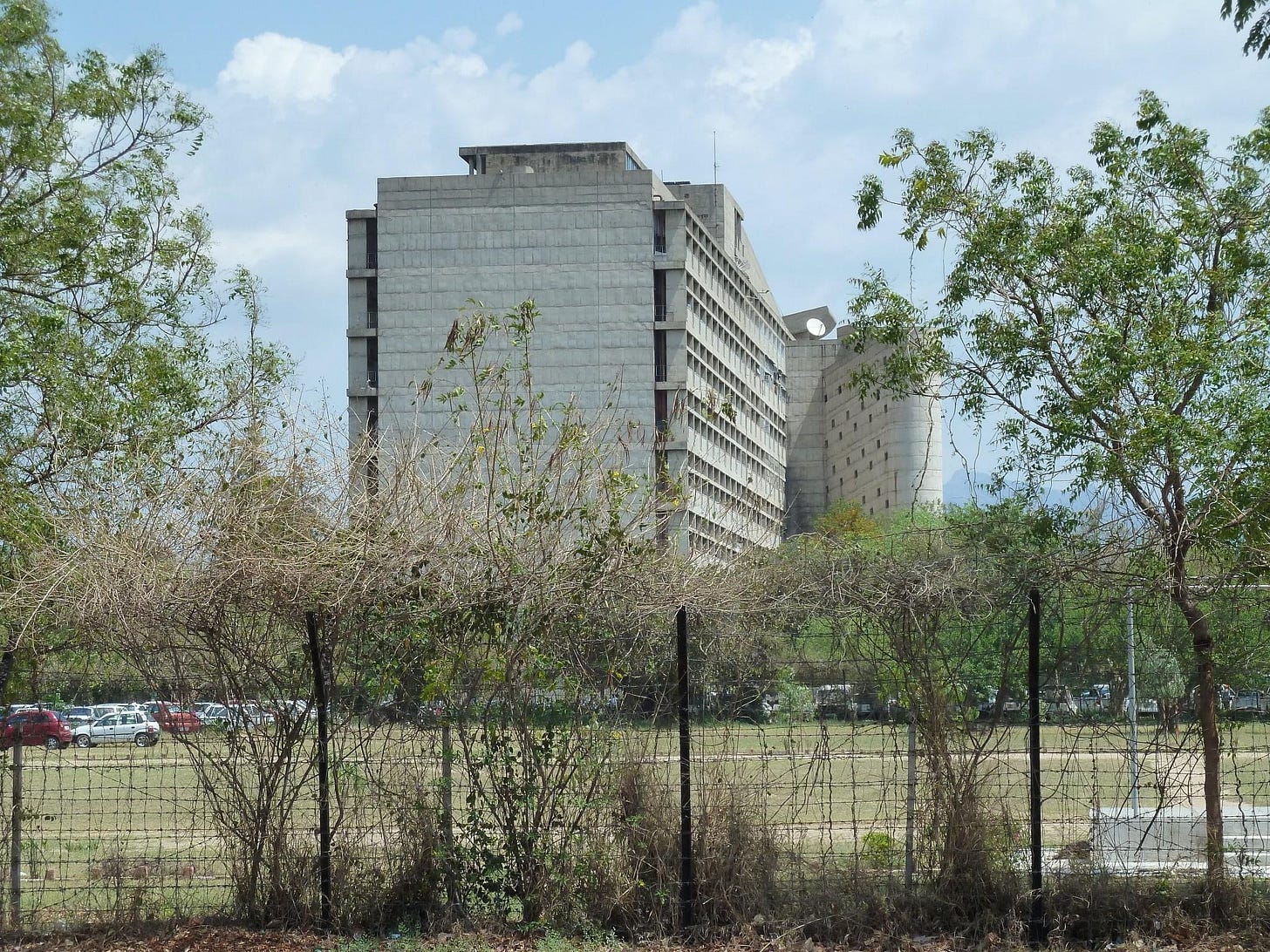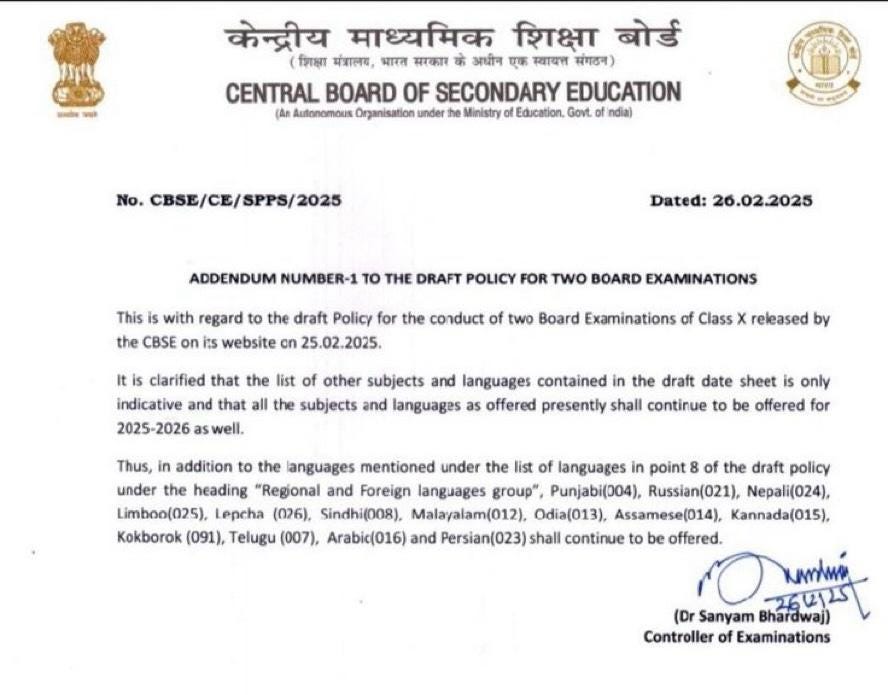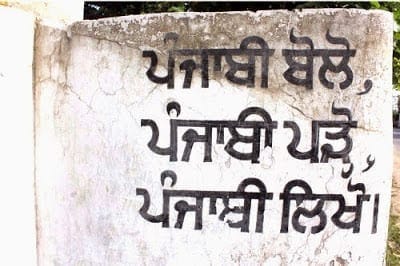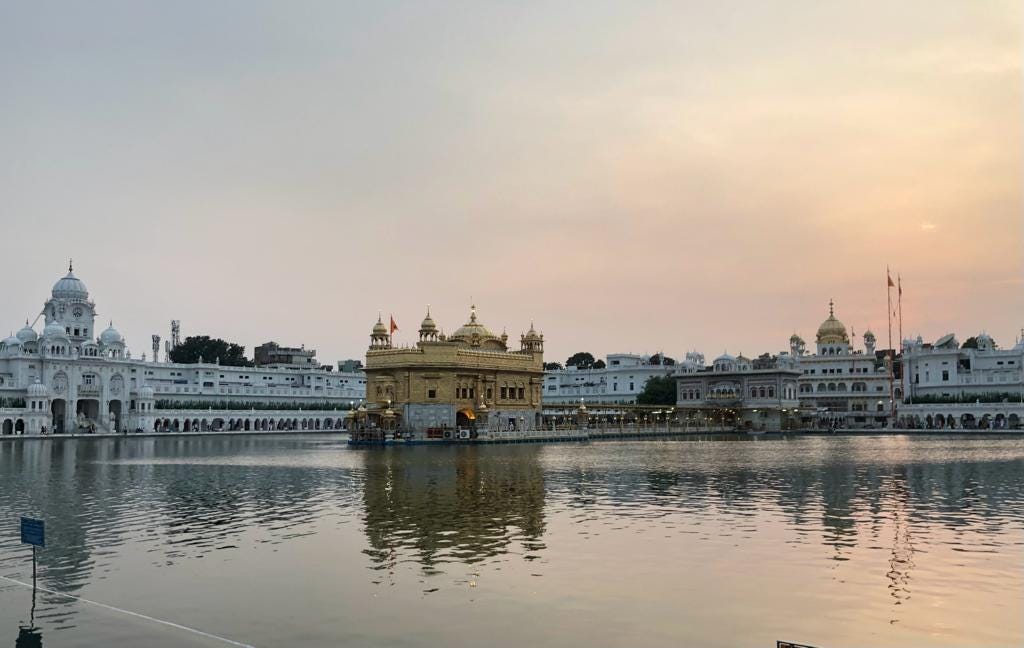Can CBSE Delete Punjabi in Punjab?
The language that withstood the onslaught of the Mughals, the Monarchs, and even the Mahatma cannot be allowed to perish in Punjab at the hands of indifferent bureaucrats of the Government of India.
The Controversy Over CBSE’s Alleged Exclusion of Punjabi
Today's uproar on social media has jolted the Central Board of Secondary Education (CBSE) from its slumber, following claims that Punjabi was omitted from the subject list for Classes 10 and 12. The controversy has sparked widespread reactions across the Punjabi political spectrum, with accusations of linguistic erasure and cultural insensitivity. CBSE, having issued an unhappily worded notification, was later able to wriggle out of the backlash by clarifying through an official press note that the list was merely “indicative” or illustrative.
This brief article not only examines the recent developments but also delves into the historical origins of the issue, the political and public responses, CBSE’s official stance, and the often-overlooked provisions of the Punjab Learning of Punjabi and Other Languages Act, 2008, which have been largely absent from public discourse.
Background: A Draft Policy Sparks Outrage
The Initial Omission of Punjabi
On 25 February 2025, CBSE released a draft national policy outlining a revised scheme for conducting biannual board examinations starting in 2026, in alignment with the National Education Policy (NEP) 2020. The document classified subjects into two categories: regional/foreign languages and other disciplines. Surprisingly, Punjabi (subject code 004) was absent from the listed regional languages, while languages such as Sanskrit, Urdu, Marathi, and Gujarati were included.
This omission triggered immediate backlash, particularly from Punjab, where the State’s Education Minister, Harjot Singh Bains, accused CBSE of an intentional move to erase Punjabi from the curriculum. Given Punjabi’s status as the official language of Punjab and its long-standing presence in CBSE syllabi, the exclusion was perceived as a direct affront to the linguistic identity of the state and the region.
The Punjab Learning of Punjabi and Other Languages Act, 2008
Mandatory Punjabi Education in Punjab Schools
Amid this controversy, many have overlooked the provisions of the Punjab Learning of Punjabi and Other Languages Act, 2008. Passed unanimously in the Punjab Vidhan Sabha during the tenure of the Parkash Singh Badal Government, in which the BJP was an active ally, this law made the teaching of Punjabi compulsory in all schools in the state from Classes 1 to 10. The role played by the author, then serving as Principal Secretary, Higher Education and Languages, Government of Punjab, under the able guidance of the Education Minister, Dr. Upinderjit Kaur, is perhaps a story for another day. Suffice it to say that the Bill was introduced at the last moment, with special permission from Speaker Sardar Nirmal Singh Kahlon, catching the BJP Ministers—an indispensable ally of the SAD Government—completely off guard. Left with no time to scrutinise the fine print before its passage, they found themselves red-faced and livid once they subsequently realised the full implications of the legislation.
The Act also mandates the teaching of Hindi from Classes 3 to 8, while explicitly stating that there is no restriction on the teaching of English. However, the law is silent on the medium of instruction. Legal experts argue that since education is a subject on the Concurrent List, a state law cannot impose its will on CBSE, a statutory body under the Central Government. That said, the Act does not prima facie contradict any central legislation and thus was assented by the Governor of Punjab, without reserving it for the assent of the President of India.
No Matriculation Certificate Without Punjabi?
A particularly significant yet contentious provision—especially for certain proponents of Hindi imposition in Punjab—is Section 3(2) of the Act, which explicitly states:
"No board or institution shall award matriculation certificate to any student, unless he has passed the Tenth Class examination in Punjabi subject.”
This raises a fundamental question: Can CBSE legally issue matriculation certificates in Punjab without adhering to this law? If CBSE persists in disregarding this provision and continues to issue certificates to students who have not studied Punjabi, it may be in direct violation of the Punjab statute. The Punjab Government must consider taking CBSE to court to enforce this statutory requirement, especially if CBSE, functioning as an instrumentality of the BJP-led Central Government, persists in advancing its Hindi-dominant education policy in non-Hindi-speaking states under the guise of the New Education Policy (NEP) 2020.
A harmonious interpretation suggests that while Punjabi must be taught, students may have the option to choose either Punjabi or Hindi as an elective from Class 9 onwards. However, this interpretation remains contentious and may ultimately require judicial clarification.
Exemptions and Enforcement
Section 7 of the Act empowers the Punjab Government to exempt specific categories of students—such as children of defence personnel and foreign nationals—from its provisions. However, no such exemptions are available for schools themselves. Non-compliant institutions face escalating civil pecuniary penalties, though the Act refrains from prescribing criminal prosecution.
Political and Public Backlash
Unprecedented Political Unity in Punjab
The controversy cut across party lines in Punjab, with leaders from various factions condemning CBSE’s decision. Punjab Education Minister criticised the omission, arguing that Punjabi’s widespread presence in India and its cultural significance warranted its inclusion in CBSE’s list of regional languages.
Shiromani Akali Dal (SAD) termed it a “conspiracy to wipe out Punjabi,” drawing parallels with Tamil Nadu’s resistance to Hindi imposition. Meanwhile, Punjab’s Chief Minister, Bhagwant Mann, came under fire from opposition leaders for his perceived inaction on the matter. However, the Punjab BJP leaders were intriguingly silent.
Political figures like Akali Dal’s Bikram Singh Majithia, whose family has been closely associated with the establishment and management of Khalsa College Amritsar, underscored the global significance of Punjabi. He highlighted that the language is spoken by millions worldwide and deserves greater institutional and official recognition, particularly in Punjab.
A Recurring Issue: Historical Precedents
This is not the first time CBSE has faced criticism regarding Punjabi. A similar controversy arose in 2021 when the Board classified Punjabi as a “minor subject” for administrative convenience. This decision was met with strong opposition from then-Punjab Chief Minister Charanjit Singh Channi, who accused CBSE of violating federal principles. CBSE had defended the classification as purely logistical, in terms of the conduct of examinations, but the recurring instances of perceived discrimination have reinforced suspicions about an anti-Punjabi bias. Even at that time, I had written an article for The Hindustan Times (22 October 2021 issue), analysing the issue within the framework of the Punjab Act of 2008 and personally brought its provisions to the attention of the then Education Minister, Pargat Singh. However, it seems the department lacks institutional memory, even regarding a law it once spearheaded and enacted.
The Bigger Picture: Safeguarding Punjabi in National Education
The Need for Institutional Safeguards
The controversy underscores the urgent need for formal protections for regional languages in national education policies. One possible solution is legislative intervention to ensure that state languages cannot be excluded from national curricula. States like Telangana have already enacted laws mandating the inclusion of Telugu in school education, much like Punjab’s model for Punjabi. In fact, the Punjab Chief Minister should convene a national conclave of the CMs of all non-Hindi-speaking states to wage this battle collectively—before each language is suffocated in isolation.
The Path Forward
Moving forward, CBSE must adopt a more transparent approach to policy changes, particularly those concerning language education. Greater consultation with state governments, linguistic experts, and civil society organisations can help prevent such misunderstandings and ensure that regional languages receive due recognition.
For Punjab, this episode serves as a wake-up call to strengthen institutional mechanisms that safeguard its linguistic heritage. If CBSE refuses to comply with the Punjab Learning of Punjabi and Other Languages Act, 2008, the Punjab Government may need to initiate legal proceedings to uphold the integrity of its statutory provisions. The battle for Punjabi’s rightful place in the education system is far from over, and continued vigilance will be necessary to protect its standing in national curricula.
The language that withstood the onslaught of the Mughals, the Monarchs, and even the Mahatma cannot be allowed to perish in Punjab at the hands of indifferent bureaucrats of the Government of India—whether by accident or by design.
Birth of Gurmukhi: How it Survived the Mughals, the Monarchy, and the Mahatma
Birth of Gurmukhi: Introduction
Citations
CBSE responds to Punjab Education Minister
CBSE to reintroduce Punjabi
CBSE’s clarification on minor subjects
Punjab’s reaction to CBSE’s move
CBSE’s draft norms face backlash
Article by the author for The Hindustan Times, Punjabi in Punjab Schools: Rhetoric versus Reality.









Very well said and well put, sir ji. 🙏🏻🙏🏻🙏🏻
Pakistan’s theocratic state has done gross injustice to the language spoken by the largest number of Punjabis. Yet they have not been able to stop the Punjabis of Pakistan to speak their mother tongue. This unfortunate situation has arisen because those in the government hardly know the richness of the language. This happens to most of the regional languages. The case of Punjabi is slightly more unfortunate. The division of Punjab was carried out without taking the Punjabis in confidence. It was part of a bigger conspiracy to keep the Punjabi spirit suppressed. If governments decide to ignore the rich heritage in the form of literature, arts, history and music of Punjab, it becomes the duty of every Punjabi to keep the torch glowing by way of private endeavour. (Punjabis have themselves earned the official language status for their moth tongue in Canada by their sheer hard work and without any friction with the state). This foolish act of the CBSE needs to be resisted tooth and nail.
Those at the helm of affairs do not realise that Punjabi has more affinity with Sanskrit than Hindi has.